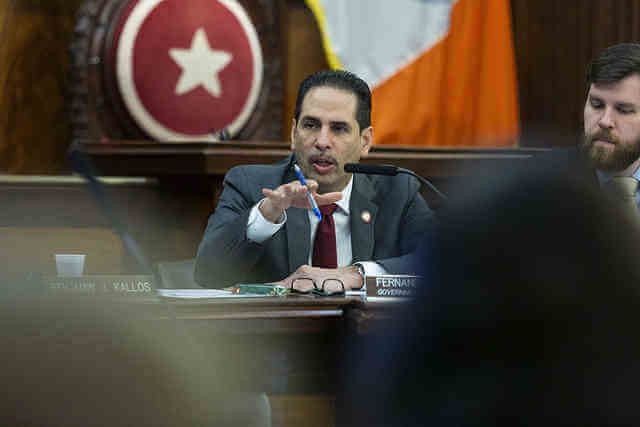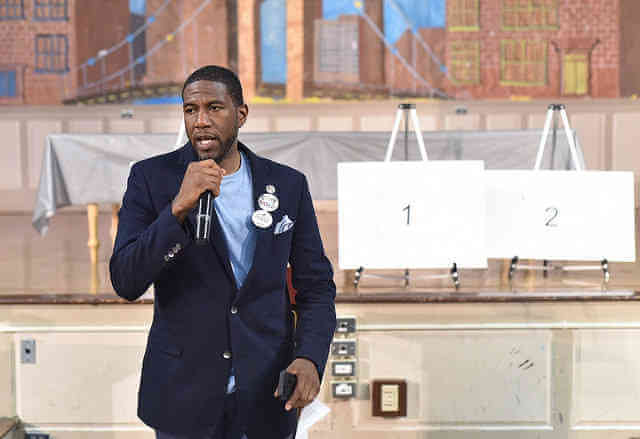Scott Lively, a virulently anti-gay Massachusetts pastor and attorney, has for now evaded the efforts of gay Ugandans to hold him accountable in a US court for his hate campaign in their country. | SOUTHERN POVERTY LAW CENTER
BY ARTHUR S. LEONARD | Even while describing pastor and attorney Scott Lively as “an American citizen who has aided and abetted a vicious and frightening campaign of repression against LGBTI persons in Uganda,” US District Judge Michael A. Ponsor, in Springfield, Massachusetts, has dismissed a lawsuit against him brought by the Center for Constitutional Rights.
CCR is representing Sexual Minorities Uganda, an umbrella group for LGBTI organizations within that country. While excoriating Lively for his actions, the judge, on June 5, held that the Alien Tort Statute (ATS) does not give the federal court jurisdiction to decide whether Lively has violated international human rights.
In a previous ruling on Lively’s motion to dismiss the lawsuit shortly after it was filed, Ponsor had rejected Lively’s argument that his action “simply did not violate international norms with sufficient clarity to place it within the narrow class of claims subject to ATS jurisdiction.”
Federal court finds Massachusetts bigot’s noxious activity largely committed abroad
The court, in 2013, ruled that “widespread, systematic persecution of LGBTI people constitutes a crime against humanity that unquestionably violates international norms.”
Lively had also argued that the conduct the plaintiffs were objecting to took place outside the US, so a court here could not try and punish him for it.
At that time, Ponsor was not willing to dismiss the complaint on this basis without giving the plaintiffs a chance to conduct discovery in support of their claim that Lively engaged in sufficient activity here in the US to subject himself to the court’s jurisdiction.
Lively, who lives in Massachusetts, had email contact with anti-gay individuals, including legislators, in Uganda on several occasions, and traveled to that country a number of times for meetings that led to the drafting and introduction of a draconian law that, in it original form, would impose the death penalty for “aggravated homosexuality.”
CCR alleged that Lively’s published anti-gay writings and speeches in Uganda represented an important element in that nation’s anti-gay movement.
Ponsor’s description of Lively’s beliefs and activities pulled no punches.
“Defendant’s position on LGBTI people range from the ludicrous to the abhorrent,” he wrote. “He has asserted that ‘Nazism was in large part an outgrowth of the German homosexual movement,’ and that ‘in seeking the roots of fascism we once again find a high correlation between homosexuality and a mode of thinking which we can identify with Nazism.’ He has tried to make gay people scapegoats for practically all of humanity’s ills, finding ‘through various leads, a dark and powerful homosexual presence in… the Spanish Inquisition, the French “Reign of Terror,” the era of South African apartheid, and the two centuries of American slavery.’ This crackpot bigotry could be brushed aside as pathetic, except for the terrible harm it can cause.”
Ponsor also detailed how Lively had “worked with elements in Uganda who share some of his views to try to repress freedom of expression by LGBTI people in Uganda, depriving them of the protection of the law, and render their very existence illegal.”
After discovery had been finished, however, Ponsor concluded that it appears that a small number of email exchanges were all that would link Lively’s anti-gay activities in Uganda with the United States, and the judge considered this inadequate, particularly in light of a recent US Supreme Court decision in Kiobel v Royal Dutch Petroleum Company.
There, a group of Nigerian residents tried to sue two international oil companies in a US federal court under the ATS for engaging in the destruction of the local environment through a subsidiary in Nigeria the companies jointly owned. Both of the oil companies conduct extensive business activities in the US but are incorporated and headquartered elsewhere. The conduct alleged by the plaintiffs included having “aided and abetted the Nigerian military and police — providing supplies, transportation, and compensation — in carrying out beatings, rapes, murders, and arbitrary arrests of residents, including the four petitioners.”
Awful stuff.
But the Supreme Court, in an opinion by Chief Justice John Roberts, found that the corporations’ business activities in the US were insufficient to give a federal court jurisdiction to hold them accountable for activities that took place entirely in Nigeria.
Since the ATS was adopted in 1789, the federal courts have frequently wrestled with the question whether that statute allows a foreign national to file suit in a US court for something that has been done to them outside of America.
In his opinion in the Kiobel v Royal Dutch Petroleum Company, Roberts stated that there was “no indication that the ATS was passed to make the United States a uniquely hospitable forum for the enforcement of international norms.”
Judge Ponsor acknowledged distinctions in Lively’s case. Lively is a US citizen living in Massachusetts, and he has published incendiary anti-gay books in the US that created an international reputation for him, leading homophobic individuals from Uganda to invite him to their country to lead an anti-gay crusade. As part of this process, he received emails from them in the US and sent emails from the US. But Ponsor did not think these distinctions sufficient to confer jurisdiction, in light of the Supreme Court’s ruling and some lower court rulings in similar cases.
“In this case, now that discovery is complete, the record reveals that Defendant supplied no financial backing to the detestable campaign in Uganda,” wrote Ponsor, “he directed no physical violence, he hired no employees, and he provided no supplies or other material support. His most significant efforts on behalf of the campaign occurred within Uganda itself, when he appeared at conferences, meetings, and media events. The emails sent from the United States providing advice, guidance, and rhetorical support for the campaign on the part of others in Uganda simply do not rise to the level of ‘force’ sufficient to displace the presumption against extraterritorial application.”
Indeed, the judge pointed out, with the world now “wrapped in a vast network of internet communications,” allowing jurisdiction in a case like this would render the presumption against extraterritoriality a “fiction.”
Ponsor also voiced concern about the foreign policy implications of letting foreign nationals sue in a US court in a case like this, which involved “highly placed members of the Ugandan legislative and executive branches in complicity with Defendant.”
He also pointed out that the Ugandan judicial system “has weighed in vigorously on the local issues that Plaintiff wishes to have this court adjudicate here in the United States,” noting that country’s Supreme Court had invalidated the anti-gay statute, concluding that there was not a legal quorum of legislators present when it was snuck through without sufficient advance notice.
The differences between this case and that involving the oil companies — and the particular factor of Lively being a US citizen — suggest that this need not necessarily be the end of the case.
Ponsor noted that CCR had also asserted state law claims against Lively, and that those could be filed in a Massachusetts court.
CCR might also file an appeal in the First Circuit Court of Appeals, arguing that the trial judge took too narrow a view of ATS jurisdiction.
Still, this dismissal is a definite setback in a case that has been pending for several years.



































